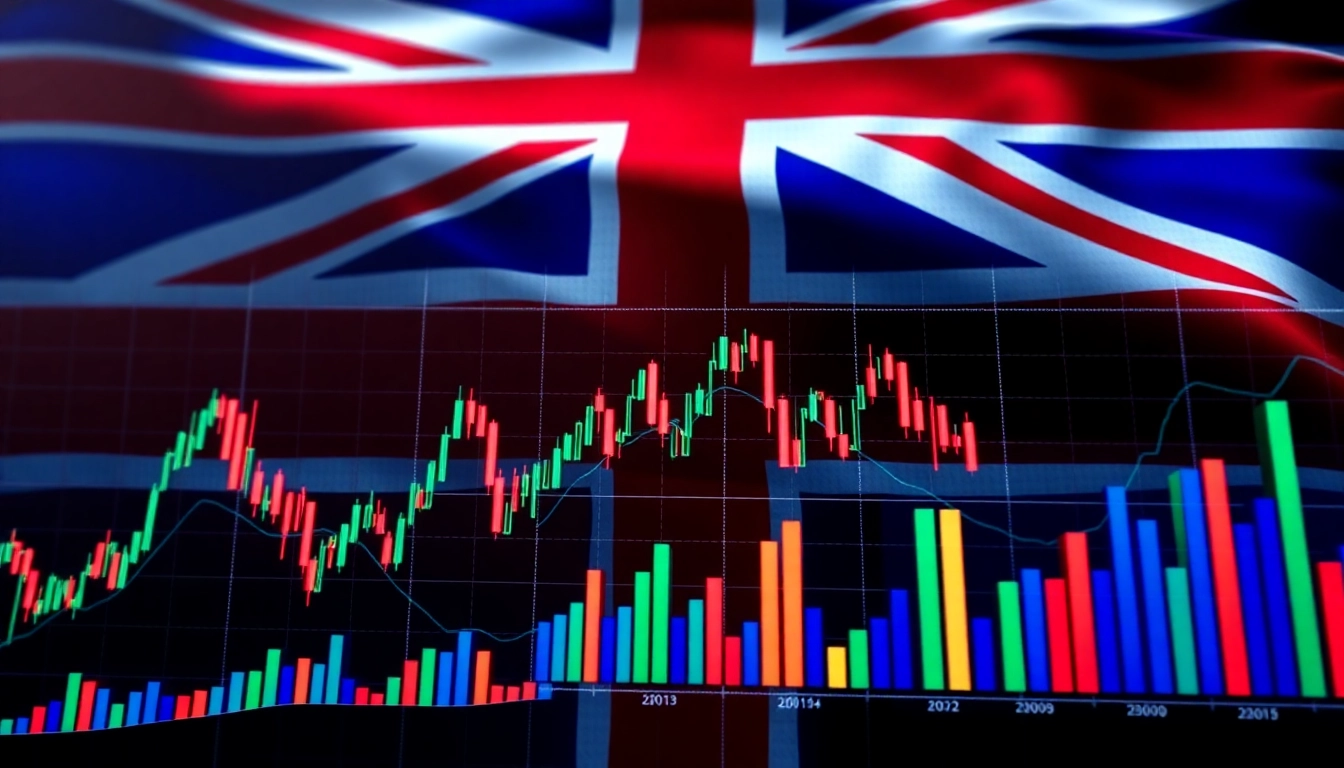Understanding Current UK Trading Market Trends
The UK trading environment continues to evolve under the influence of global economic shifts, geopolitical developments, and domestic policy changes. Recent stock market performances have been characterized by notable fluctuations, reflecting investor sentiment amidst prevailing uncertainties. To stay ahead, traders and investors must analyze these patterns critically. The UK stock indices, such as the FTSE 100 and FTSE 250, have shown periods of resilience and volatility, driven by factors like inflation rates, Brexit adjustments, and macroeconomic indicators. Understanding these fluctuations is essential for making informed decisions and capitalizing on emerging opportunities. For more insights on the latest developments, explore our comprehensive UK Trading Updates.
Analyzing recent stock market performances in the UK
Over the past few months, UK markets have experienced a mixture of gains and setbacks. The FTSE 100, often regarded as a barometer of economic health, closed marginally higher, buoyed by gains in sectors like defense, banking, and basic materials. For instance, the rebound in mining stocks—led by global commodity price surges—encapsulates how commodity-driven sectors are influencing overall performance. Meanwhile, volatility persists due to geopolitical tensions and global monetary policy shifts, especially with the influence of the US Federal Reserve and European Central Bank decisions. The recent rally in banking stocks, prompted by optimism around interest rate trajectories, indicates cautious investor optimism but also highlights underlying risks tied to inflation and economic growth prospects.
Key factors influencing UK market fluctuations
Several key factors are currently shaping UK trading updates:
- Interest Rate Policies: With the Bank of England’s hints at potential rate hikes to combat inflation, banking stocks have been responsive, with increased volatility tied to rate expectation changes.
- Global Commodity Prices: The resurgence in metal and energy prices has bolstered the shares of mining and energy firms, providing a lift to indices but also raising concerns over inflationary pressures.
- Geopolitical Uncertainty: Political developments, including Brexit-related negotiations and international relations, continue to inject unpredictability into the markets.
- Currency Movements: The GBP’s fluctuations against the USD and EUR impact multinational companies’ profitability, thus influencing market indices.
Understanding these factors is crucial for tailoring reactive and proactive trading strategies in the UK context.
Impact of global events on UK trading updates
Global events such as US Federal Reserve policy shifts, geopolitical conflicts, and international trade tensions significantly impact UK markets. For example, US rate cut hopes have historically driven the GBP lower, influencing import/export dynamics and investor confidence. Recent developments, like the US-Fed’s cautious approach to rate adjustments, have led to a softer dollar, which in turn has supported certain UK export-oriented stocks. Furthermore, international commodity fluctuations, such as oil and metals, directly affect UK sectors—particularly energy, manufacturing, and mining—highlighting the interconnectedness of global markets with UK trading updates. Staying attuned to these events enables traders to anticipate shifts and adjust portfolios accordingly.
Essential Strategies for Investors Based on UK Trading Updates
Utilizing market data to inform investment decisions
Data-driven insights are fundamental for successful trading in the UK. Investors should harness real-time market data, including live price movements, volume indicators, and economic indicators, to identify trends and entry or exit points. Tools like financial analytics platforms and AI-powered dashboards facilitate a granular understanding of market sentiment and momentum. For instance, tracking sector-specific performance alongside macroeconomic releases, such as employment figures or inflation reports, can help investors align their strategies with prevailing conditions. Incorporating historical performance data and predictive analytics enhances the accuracy of forecasts, providing a competitive edge in trading decisions.
Timing trades with UK economic reports and releases
Strategic timing is vital in the UK’s often volatile environment. Economic reports—such as GDP figures, unemployment rates, and inflation indices—serve as critical triggers for market movements. For example, a surprise rise in inflation may prompt a swift market reaction, prompting traders to re-evaluate holdings. Scheduling trades around these releases allows investors to capitalize on volatility for profit or protect positions through hedging. Building a calendar of upcoming reports, coupled with alerts from trading platforms, ensures that traders respond promptly to these data points, reducing reaction lag and improving overall portfolio performance.
Risk management in changing UK trading conditions
Robust risk management frameworks are essential amid fluctuating UK market conditions. Diversification across sectors can mitigate sector-specific risks, while stop-loss orders protect against sudden downturns. Employing options strategies, such as hedging or collar options, provides additional safeguards. Furthermore, keeping a close eye on macroeconomic developments and geopolitical risks allows traders to adjust their exposure accordingly. Regularly reviewing and stress-testing portfolios against potential adverse scenarios ensures resilience and sustainability in trading practices.
Latest Financial News Shaping UK Trading Perspectives
Market reactions to UK policy changes and regulations
Recently, UK policy developments—like amendments to financial regulations or taxation policies—have elicited notable reactions within the markets. For instance, proposed tax reforms on financial transactions can influence trading volume and investor sentiment. Regulatory clarity or uncertainty impacts the valuation and attractiveness of particular sectors, such as fintech or banking. Staying informed through official government releases and regulatory updates allows traders to anticipate market shifts and adjust strategies proactively.
Gold and currency movements driving trading signals
Precious metals like gold often serve as safe havens during times of economic uncertainty, impacting trading signals for both commodities and currencies. The recent surge of gold past record levels signals heightened risk aversion and inflation concerns. Similarly, currency movements—such as the GBP’s relative weakness against the USD—affect international trade competitiveness and corporate earnings. These movements provide essential clues for timing entries and exits, especially for forex traders and those involved in commodities trading.
Insights into commodities and banking stocks in UK updates
Commodities have shown increased volatility, influenced by global supply chain tensions and demand shifts. The recent rise in energy prices has boosted energy and mining equities, although concerns about sustainability and regulation persist. Banking stocks benefit from interest rate fluctuations, inflation hedging, and economic growth prospects but are susceptible to macroeconomic shocks. A balanced view of these sectors helps in constructing resilient portfolios aligned with current UK trading news.
Technological Tools and Resources for Monitoring UK Trading
Using AI and analytics for real-time UK market insights
Artificial intelligence and advanced analytics are transforming market monitoring. AI-driven models analyze vast datasets, including social media sentiment, news feeds, and economic indicators, to generate actionable insights. Many platforms now incorporate predictive analytics that can forecast short-term movements based on historical patterns and real-time data. Implementing AI tools enables traders to identify subtle signals often invisible to traditional analysis, improving decision accuracy and speed.
Top apps and platforms for UK trading updates
Several platforms stand out for delivering comprehensive UK trading updates: TradingView offers advanced charting and real-time news; MetaTrader provides automated trading and analytics; Bloomberg Terminal delivers authoritative financial news and data. Mobile applications designed for quick access, alert customization, and integration with trading strategies allow traders to stay connected regardless of location, ensuring timely reactions to market shifts.
Data visualization tips for better market understanding
Effective visualization of market data enhances comprehension and decision-making. Using interactive charts, heatmaps, and dashboard summaries can reveal trends and anomalies swiftly. For example, color-coded indicators on sectors or stocks can highlight overbought or oversold conditions. Incorporate tools like candlestick patterns, moving averages, and volatility bands to interpret market dynamics more intuitively. Clear visual representations support faster and more confident trading decisions.
Future Outlook and Investment Opportunities in UK Trading
Forecasting market recoveries and downturns in the UK
While UK markets are currently experiencing fluctuations, analysts suggest potential recovery trajectories in sectors like green energy, technology, and healthcare, driven by government initiatives and innovation. Conversely, sectors vulnerable to international policy shifts, such as oil and commodities, may face downturns if global conditions shift unfavorably. Employing quantitative models, sentiment analysis, and scenario planning guides traders in positioning for anticipated recoveries or downturns.
Emerging sectors and investment hotspots
Key emerging sectors include renewable energy, digital finance, and biotech, which are gaining support from policy incentives and technological advancements. London’s fintech ecosystem, for instance, is expanding rapidly, creating new opportunities for early-stage investments. Additionally, UK exports of technology and green infrastructure components are poised for growth as global demand increases. Identifying these hotspots requires continuous analysis of policy trends, technological breakthroughs, and market acceptance.
Long-term planning for UK traders amidst global trends
Long-term success in UK trading demands integrating global macroeconomic forecasts with local market nuances. Diversified portfolios, sustainable investing, and risk-adjusted return strategies form the foundation. Staying adaptable through ongoing education on geopolitical risks, technological innovations, and economic policies ensures resilience. Developing a clear long-term vision aligned with macro trends allows traders to navigate volatility and capitalize on structural shifts over time.













